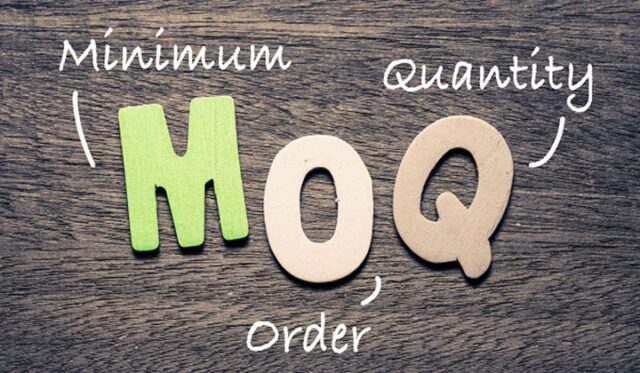If you’ve ever shopped for bulk products, you may have come across the term MOQ or Minimum Order Quantity. But what does this term really mean, and how does it affect your purchasing decisions? This article will delve into the world of MOQ and examine its impact on the business world. From understanding how it is calculated to navigating its potential challenges, we will provide a comprehensive look at the role of MOQ in the purchasing process. So, what is MOQ, and how does it fit into the larger picture of product procurement? Let’s dive in and find out.
What is MOQ?
Minimum Order Quantity, or MOQ, is a term used in business to refer to the minimum amount of a product that must be ordered in order to qualify for a particular price or discount. It is an important consideration for both buyers and sellers, as it can impact purchasing decisions and production costs.
How MOQ is determined
Determining MOQ is often influenced by various factors, including production costs, lead time, and inventory management. For example, a manufacturer may set a MOQ for a particular product to ensure that they can cover their production costs or to ensure that they have enough lead time to fulfill the order. Similarly, a seller may set a MOQ to ensure that they can manage their inventory efficiently and reduce their storage costs.
Benefits of setting MOQ
One of the primary benefits of setting a MOQ is that it allows sellers to offer bulk discounts to buyers. By committing to a larger order, buyers can take advantage of lower prices, which can appeal to businesses looking to make large purchases. Additionally, MOQ can help sellers to reduce their production costs, as they can produce larger quantities of a product at a time rather than producing smaller quantities more frequently.
Implications of MOQ for buyers
For buyers, MOQ can present challenges, particularly for smaller businesses. Minimum order requirements may affect purchasing decisions, as businesses may need to commit to larger orders than they had originally planned in order to qualify for bulk discounts. This can be a significant financial commitment and may not be feasible for businesses with limited funds or smaller product orders.
Potential downsides for sellers
For sellers, MOQ can also present challenges. While it can help them manage inventory and production, it can also lead to lost sales if buyers cannot meet the minimum order requirements. This can be particularly problematic for sellers who rely on many smaller orders to make up their overall sales.
Alternative options for smaller businesses
Fortunately, options are available for smaller businesses looking to participate in the market despite MOQ requirements. One option is to work with distributors or wholesalers, who may help them meet minimum order requirements by pooling orders from multiple businesses. Another option is negotiating with suppliers to lower MOQ requirements, particularly if the business can commit to a long-term relationship with the supplier.
In conclusion, MOQ is an important consideration for buyers and sellers. It can help to manage production costs and inventory, but it can also present challenges for smaller businesses looking to make purchases or sell products.
Fortunately, there are options available for smaller businesses, such as working with distributors or wholesalers or negotiating with suppliers to lower MOQ requirements. MOQ is an important factor to consider when making purchasing decisions or setting pricing for products.








